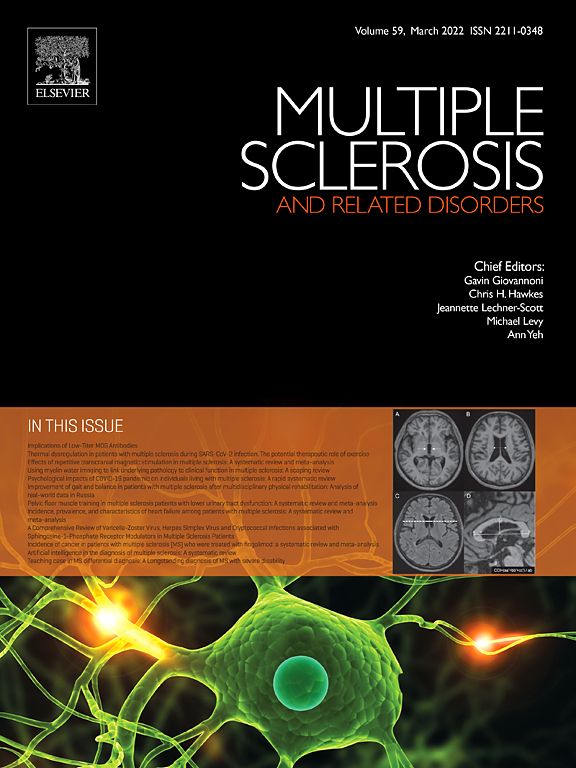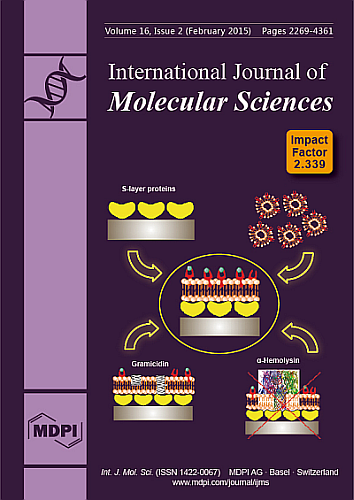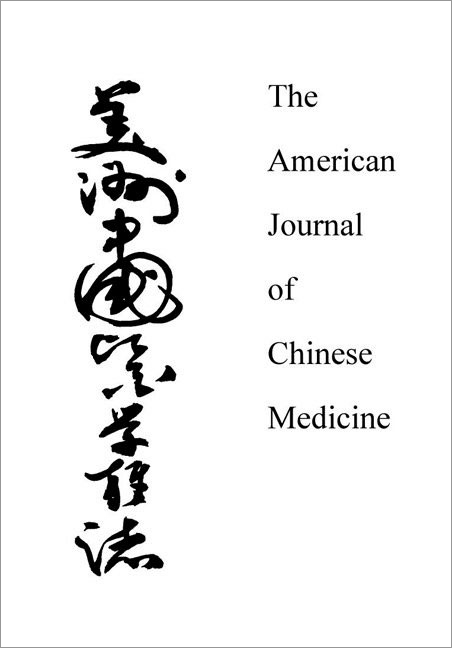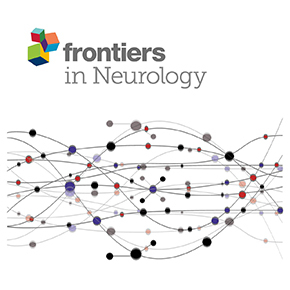Multiple Sclerosis
How to submit an article:
- Registered users can submit any published journal article that has a unique DOI (Digital Object Identifier) name or link to Research Hub.
- For example, you can paste the full DOI link:
https://doi.org/10.1109/5.771073or just the DOI name:10.1109/5.771073into the field above and click submit. - The person who is first to submit a valid article to Research Hub will forever be credited for it, and every article submission earns you +6 Research Points.
Multiple sclerosis (MS) is a chronic autoimmune disease that affects the central nervous system and causes damage to the protective covering of nerve fibers, leading to a range of symptoms including muscle weakness, difficulty with coordination and balance, vision problems, and numbness or tingling in the limbs.
Also known as: MS
Published research studies are articles that present the findings of original research that has undergone a peer-review process and has been made publicly available in scholarly journals, books or other media.

Effects of Acupuncture on Fatigue, Disability, Psychological Problems, and Sleep Quality in People with Relapsing-Remitting Multiple Sclerosis: A Randomized Controlled Trial
2023 Dec Multiple Sclerosis and Related Disorders Khodaie F, Moghadasi AN, Zhao B, Saeedi R
Twelve weeks of acupuncture treatment was effective in reducing fatigue, sleep latency, use of sleeping medication, somatization, obsessive-compulsive, depression, and paranoid disorders in people with RRMS.
Randomised Controlled Trial Multiple Sclerosis Acupuncture Sleep
Effectiveness of acupuncture for fatigue in patients with relapsing-remitting multiple sclerosis: a randomized controlled trial
2023 Feb 01 Acupuncture in Medicine Khodaie F, Naser Moghadasi A, Kazemi AH, Zhao B
Acupuncture combined with amantadine and routine care, compared with amantadine and routine care alone, appears to be an effective short-term treatment for reducing fatigue and enhancing quality of life, including physical function and mental status, in patients with RRMS.
Randomised Controlled Trial Multiple Sclerosis
Magnesium and the Brain: A Focus on Neuroinflammation and Neurodegeneration
2022 Dec 23 International Journal of Molecular Sciences Maier JAM, Locatelli L, Fedele G, Cazzaniga A, Mazur A
Review Article Alzheimer's Disease Neurodegenerative Diseases Multiple Sclerosis Parkinson's Disease MagnesiumMagnesium, essential for harmonising nerve signals and preserving the blood-brain barrier, may be linked to neurodegenerative disorders when its balance is disrupted.

Green Tea Catechins Attenuate Neurodegenerative Diseases and Cognitive Deficits
2022 Nov 06 Molecules Afzal O, Dalhat MH, Altamimi ASA, Rasool R, Alzarea SI, Almalki WH, et al.
Review Article Green Tea Cognitive Function Multiple Sclerosis Parkinson's Disease Neuroprotective Alzheimer's Disease Neurodegenerative DiseasesGreen tea's catechins demonstrate therapeutic effects against neurodegenerative diseases via anti-inflammatory, antioxidant actions, and activating diverse brain cellular pathways.

Acupuncture for multiple sclerosis: A literature review
2022 Apr 26 Multiple Sclerosis and Related Disorders Khodaie F, Abbasi N, Kazemi Motlagh AH, Zhao B, Naser Moghadasi A
Review Article Multiple SclerosisAcupuncture, when used as an integrative therapy in conjunction with traditional treatments, significantly improves the quality of life in patients with Multiple Sclerosis.
Research insights are moderated by the Research Hub team and offer an at-a-glance overview of interesting research findings.

2022 International Journal of Molecular Sciences
Magnesium, essential for harmonising nerve signals and preserving the blood-brain barrier, may be linked to neurodegenerative disorders when its balance is disrupted.
Review Article Alzheimer's Disease Magnesium Neurodegenerative Diseases Parkinson's Disease
Magnesium and the Brain: A Focus on Neuroinflammation and Neurodegeneration
Maier JAM, Locatelli L, Fedele G, Cazzaniga A, Mazur A

2022 Molecules
Green tea's catechins demonstrate therapeutic effects against neurodegenerative diseases via anti-inflammatory, antioxidant actions, and activating diverse brain cellular pathways.
Review Article Alzheimer's Disease Cognitive Function Green Tea Neurodegenerative Diseases Neuroprotective
Green Tea Catechins Attenuate Neurodegenerative Diseases and Cognitive Deficits
Afzal O, Dalhat MH, Altamimi ASA, Rasool R, Alzarea SI, Almalki WH, et al.

2022 Multiple Sclerosis and Related Disorders
Acupuncture, when used as an integrative therapy in conjunction with traditional treatments, significantly improves the quality of life in patients with Multiple Sclerosis.
Review Article
Acupuncture for multiple sclerosis: A literature review
Khodaie F, Abbasi N, Kazemi Motlagh AH, Zhao B, Naser Moghadasi A

2022 The American Journal of Chinese Medicine
Acupuncture shows promising results in managing autoimmune diseases by potentially regulating immune responses.
Review Article Inflammatory Bowel Disease Rheumatoid Arthritis
Therapeutic Effect and Mechanism of Acupuncture in Autoimmune Diseases
Jing Wang, Fangyi Zhu, Wei Huang, Zhengyi Chen, Ping Zhao, Yanting Lei, et al.

2021 Frontiers in Neurology
Traditional Chinese herbal medicine shows promising efficacy in improving clinical symptoms and reducing recurrence of multiple sclerosis.
Systematic Review
Current Utilization and Research Status of Traditional East Asian Herbal Medicine Treatment for Multiple Sclerosis: A Scoping Review
Seo Y, Jin C, Cho S-Y, Park S-U, Jung W-S, Moon S-K, et al.
Review Articles
Review articles summarise and critically evaluate the current state of research on a specific topic or field by synthesising multiple primary research studies.

Magnesium and the Brain: A Focus on Neuroinflammation and Neurodegeneration
2022 Dec 23 International Journal of Molecular Sciences Maier JAM, Locatelli L, Fedele G, Cazzaniga A, Mazur A
Review Article Alzheimer's Disease Neurodegenerative Diseases Multiple Sclerosis Parkinson's Disease MagnesiumMagnesium, essential for harmonising nerve signals and preserving the blood-brain barrier, may be linked to neurodegenerative disorders when its balance is disrupted.

Green Tea Catechins Attenuate Neurodegenerative Diseases and Cognitive Deficits
2022 Nov 06 Molecules Afzal O, Dalhat MH, Altamimi ASA, Rasool R, Alzarea SI, Almalki WH, et al.
Review Article Green Tea Cognitive Function Multiple Sclerosis Parkinson's Disease Neuroprotective Alzheimer's Disease Neurodegenerative DiseasesGreen tea's catechins demonstrate therapeutic effects against neurodegenerative diseases via anti-inflammatory, antioxidant actions, and activating diverse brain cellular pathways.

Acupuncture for multiple sclerosis: A literature review
2022 Apr 26 Multiple Sclerosis and Related Disorders Khodaie F, Abbasi N, Kazemi Motlagh AH, Zhao B, Naser Moghadasi A
Review Article Multiple SclerosisAcupuncture, when used as an integrative therapy in conjunction with traditional treatments, significantly improves the quality of life in patients with Multiple Sclerosis.

Therapeutic Effect and Mechanism of Acupuncture in Autoimmune Diseases
2022 Mar 10 The American Journal of Chinese Medicine Jing Wang, Fangyi Zhu, Wei Huang, Zhengyi Chen, Ping Zhao, Yanting Lei, et al.
Review Article Rheumatoid Arthritis Inflammatory Bowel Disease Multiple SclerosisAcupuncture shows promising results in managing autoimmune diseases by potentially regulating immune responses.

Current Utilization and Research Status of Traditional East Asian Herbal Medicine Treatment for Multiple Sclerosis: A Scoping Review
2021 Oct 18 Frontiers in Neurology Seo Y, Jin C, Cho S-Y, Park S-U, Jung W-S, Moon S-K, et al.
Systematic Review Multiple SclerosisTraditional Chinese herbal medicine shows promising efficacy in improving clinical symptoms and reducing recurrence of multiple sclerosis.
Clinical Trials
Clinical trials are research studies that involve people and are conducted to evaluate the safety and efficacy of new treatments or interventions, such as drugs, medical devices, or behavioural therapies.

Effects of Acupuncture on Fatigue, Disability, Psychological Problems, and Sleep Quality in People with Relapsing-Remitting Multiple Sclerosis: A Randomized Controlled Trial
2023 Dec Multiple Sclerosis and Related Disorders Khodaie F, Moghadasi AN, Zhao B, Saeedi R
Twelve weeks of acupuncture treatment was effective in reducing fatigue, sleep latency, use of sleeping medication, somatization, obsessive-compulsive, depression, and paranoid disorders in people with RRMS.
Randomised Controlled Trial Multiple Sclerosis Acupuncture Sleep
Effectiveness of acupuncture for fatigue in patients with relapsing-remitting multiple sclerosis: a randomized controlled trial
2023 Feb 01 Acupuncture in Medicine Khodaie F, Naser Moghadasi A, Kazemi AH, Zhao B
Acupuncture combined with amantadine and routine care, compared with amantadine and routine care alone, appears to be an effective short-term treatment for reducing fatigue and enhancing quality of life, including physical function and mental status, in patients with RRMS.
Randomised Controlled Trial Multiple SclerosisStudy Protocols
Published study protocols are detailed plans that outline the objectives, methodology, statistical analyses, and organisation of a research study that have been made publicly available for others to review and use as a reference.
Presentation Slides

Review Article
Magnesium, essential for harmonising nerve signals and preserving the blood-brain barrier, may be linked to neurodegenerative disorders when its balance is disrupted.
Maier JAM, Locatelli L, Fedele G, Cazzaniga A, Mazur A

Review Article
Green tea's catechins demonstrate therapeutic effects against neurodegenerative diseases via anti-inflammatory, antioxidant actions, and activating diverse brain cellular pathways.
Afzal O, Dalhat MH, Altamimi ASA, Rasool R, Alzarea SI, Almalki WH, Murtaza BN, Iftikhar S, Nadeem S, Nadeem MS, Kazmi I

Review Article
Acupuncture, when used as an integrative therapy in conjunction with traditional treatments, significantly improves the quality of life in patients with Multiple Sclerosis.
Khodaie F, Abbasi N, Kazemi Motlagh AH, Zhao B, Naser Moghadasi A

Review Article
Acupuncture shows promising results in managing autoimmune diseases by potentially regulating immune responses.
Jing Wang, Fangyi Zhu, Wei Huang, Zhengyi Chen, Ping Zhao, Yanting Lei, Yumei Liu, Xijun Liu, Bo Sun, Hulun Li

Systematic Review
Traditional Chinese herbal medicine shows promising efficacy in improving clinical symptoms and reducing recurrence of multiple sclerosis.
Seo Y, Jin C, Cho S-Y, Park S-U, Jung W-S, Moon S-K, Park J-M, Ko C-N, Cho K-H and Kwon S

Systematic Review
There is a significant effect of Chinese herbal medicine for improving Expanded Disability Status Score, annual relapse frequency and the total clinical efficacy rate for multiple sclerosis compared with western conventional treatment.
Liang Song, Qi-hui Zhou, Hui-lin Wang, Feng-jiao Liao, Liang Hua, Hong-feng Zhang, Li-bo Huang, Yan Lin, Guo-qing Zheng

Review Article
Despite methodological shortcomings, existing studies suggest acupuncture may improve symptoms related to Multiple Sclerosis including quality of life, fatigue, spasticity, and pain.
H. I. Karpatkin et al.

Case Report
Chinese scalp acupuncture, incorporating Western medical knowledge of the cerebral cortex, can significantly improve the quality of life and physical capacity of patients suffering from multiple sclerosis.
Hao JJ, Cheng W, Liu M, Li H, Lü X, Sun Z
Executive Summary
Write an executive summary in the form of a blog article on the topic of "Research into Chinese medicine treatment for Multiple Sclerosis" summarising the research below and using language that can be easily understood by patients and avoiding medical jargon using a professional and caring tone of voice.
Write an executive summary in the form of a blog article on the topic of "Researched Chinese medicine treatments for Multiple Sclerosis" summarising the research below in an objective and easy to understand way, and using language that can be easily understood by patients. Group the article into Chinese medicine treatments first, followed by nutrition and other treatments. Avoid using medical jargon and use a professional and caring tone of voice.
Write me a concise but easy to understand executive summary on the topic of "Chinese medicine treatments for Multiple Sclerosis" based on the following research that I will give you. Your summary should be 2 paragraphs long in Australian English spelling and include references to the studies.
A Review Article published in 2022 in the journal International Journal of Molecular Sciences found that Magnesium, essential for harmonising nerve signals and preserving the blood-brain barrier, may be linked to neurodegenerative disorders when its balance is disrupted. The researchers performed a narrative review, beginning with a quick overview of the role of magnesium in the brain. Magnesium is crucial for healthy nerve signal transmission and the upkeep of the blood-brain barrier, which protects the brain from harmful substances in the blood. Then, they discussed evidence suggesting a connection between disrupted magnesium balance and a variety of neurodegenerative disorders. In the discussion of the results, it was posited that a deficiency in magnesium might contribute to low-grade systemic inflammation, which is common in many illnesses. Specifically, they argued that such inflammation in the brain is a characteristic feature of neurodegenerative diseases. The review found evidence that disruptions in the body's magnesium balance could be associated with multiple sclerosis, Alzheimer's, and Parkinson's diseases.
A Review Article published in 2022 in the journal Molecules found that Green tea's catechins demonstrate therapeutic effects against neurodegenerative diseases via anti-inflammatory, antioxidant actions, and activating diverse brain cellular pathways. The research primarily evaluates the effect of polyphenolic compounds found in green tea, known as catechins, on neurodegenerative diseases. By conducting several interventional and observational studies on humans, the research explores the anti-cancer, anti-obesity, antidiabetic, anti-inflammatory, and neuroprotective properties of these compounds. The biological, pharmacological, antioxidant, and metal chelating abilities of catechins, particularly their influence on different cellular pathways within the brain, are intensively studied. The results elucidate that catechins exhibit multiple neuroprotective effects. Their anti-inflammatory and antioxidant properties help to inhibit excessive production of cytokines, and inflammatory pathways, while also controlling metal ions and free radicals. Researchers have further established that catechins may curb the phosphorylation of the tau protein and aggregation of amyloid beta, both key markers in neurodegenerative diseases. Additionally, these compounds show potential in reducing alpha-synuclein levels and augmenting dopamine levels. Hence, they significantly contribute to the prevention and treatment of neurodegenerative diseases, including Alzheimer's, Parkinson's, multiple sclerosis, and cognitive deficits.
A Review Article published in 2022 in the journal Multiple Sclerosis and Related Disorders found that Acupuncture, when used as an integrative therapy in conjunction with traditional treatments, significantly improves the quality of life in patients with Multiple Sclerosis. In the methodology of this study, the PUBMED database was meticulously searched in September 2021, for English articles or at least ones with English abstracts, surfacing every article published from the inception of the literature up until the latter part of 2021. The search terms included keywords such as 'acupuncture', 'electroacupuncture', and 'multiple sclerosis' in the titles and abstracts. Out of the 75 articles discovered, just a little over a third, precisely 31 articles, were incorporated into this study. The discovery from the methodology outlined was that acupuncture provides an array of benefits for Multiple Sclerosis patients. These benefits are primarily seen in the regulation of the neuro-immune system, enhancement of life quality, fatigue reduction, improved bladder functionality, diminished limb spasm and pain, deceleration of disease progression, and decreased relapses. Traditional Chinese acupuncture and scalp acupuncture were observed to be particularly helpful in alleviating Multiple Sclerosis symptoms such as fatigue, neural functional deficits, pain, gait abnormalities, and bladder dysfunction, alongside reducing relapse occurrences. This makes acupuncture a viable integrated therapy option for patients with Multiple Sclerosis.
A Review Article published in 2022 in the journal The American Journal of Chinese Medicine found that Acupuncture shows promising results in managing autoimmune diseases by potentially regulating immune responses. The methodology of the study involved a comprehensive review of how acupuncture, a form of traditional Chinese medicine, may be employed as a treatment method for autoimmune diseases such as multiple sclerosis, rheumatoid arthritis, and inflammatory bowel disease. The research was based on existing knowledge and accumulating data, investigating the role of acupuncture in regulating immune responses during these conditions. The discussion of the results revealed that acupuncture showed promise in managing these diseases. It was noted that the positive outcomes observed might be linked to the potential of acupuncture to regulate abnormal immune responses which are characteristic of autoimmune diseases. Despite the fact that the precise mechanism through which this achieved is not fully understood, the findings indicate a promising alternative method of managing autoimmune conditions.
A Systematic Review published in 2021 in the journal Frontiers in Neurology found that Traditional Chinese herbal medicine shows promising efficacy in improving clinical symptoms and reducing recurrence of multiple sclerosis. In the methodological process for this research, a scoping review was conducted using the Arksey and O'Malley framework, focusing on studies related to the use of herbal medicine treatments for MS patients. The researchers carried out the investigation in March 2020, by reviewing articles published until 2019 found in six databases which include PubMed, Embase, Cochrane, KoreaMed, NDSL, and OASIS. In the findings, 14 studies were identified out of the 1,445 articles and were analysed in line with the study's questions. Predominantly, these were single and serial case reports, with the majority of the studies being conducted in China. It was noted that a total of 20 prescriptions which contained 95 types of herbs were used in intervention and observational studies. The results of the research revealed that herbal medicines were successful in improving clinical symptoms of MS and reducing recurrence rates, with oxidative stress identified as the main presumed cause of MS.
A Systematic Review published in 2017 in the journal Complementary Therapies in Medicine found that There is a significant effect of Chinese herbal medicine for improving Expanded Disability Status Score, annual relapse frequency and the total clinical efficacy rate for multiple sclerosis compared with western conventional treatment. A total of 1,100 participants were included in the 20 studies from 2004 to 2015. The number of risk of bias which met the criteria varied from 5/12 to 7/12. The top 5 most frequently used herbs are ordinally Radix Angelicae Sinensis, Radix Glycyrrhizae, Radix Paeoniae Rubra, Radix Rehmanniae Preparata, and Bombyx Batryticatus. In analysis of annual relapse rate and annual relapse interval, there was a significant difference between CHMs and western conventional treatment. Adverse effects were monitored in 6 studies, and were well tolerated in all MS patients. The available evidence from present study supported but limited to recommend the routine use of CHM adjuvant therapy for MS because of the poor methodological quality and clinical heterogeneity. However, we identified an area that is worthy of further study.
A Review Article published in 2014 in the journal Evidence-Based Complementary and Alternative Medicine found that Despite methodological shortcomings, existing studies suggest acupuncture may improve symptoms related to Multiple Sclerosis including quality of life, fatigue, spasticity, and pain. The study methodology includes a comprehensive literature search, locating twelve peer-reviewed articles that explored the use of acupuncture as a treatment for Multiple Sclerosis-related symptoms like quality of life, fatigue, spasticity, and pain. However, the majority of these studies had flaws in their design, including lack of control groups, randomization, or blinding procedures. In relation to the discussion of results, although the retrieved studies indicated promising outcomes suggesting acupuncture's potential in enhancing Multiple Sclerosis-related symptoms, the lack of statistical rigor and poor design of these studies put a limitation on the conclusions that can be made about the effectiveness of this form of intervention.
A Case Report published in 2013 in the journal Global Advances in Health and Medicine found that Chinese scalp acupuncture, incorporating Western medical knowledge of the cerebral cortex, can significantly improve the quality of life and physical capacity of patients suffering from multiple sclerosis. In this study, a 65-year-old male with a 20-year history of multiple sclerosis was treated through Chinese scalp acupuncture. Areas of stimulation included the motor area, sensory area, foot motor and sensory area, balance area, hearing and dizziness area, and tremor area. This treatment was applied once a week for 10 weeks, followed by once a month for six additional sessions, for a total of 16 treatments. The patient's response was remarkable after the completion of the therapy. Notably, he gained the ability to stand and walk without issue, while previous issues such as limb numbness and tingling ceased to bother him. He also saw improvements in his energy levels. He didn't experience dizziness or incontinence after the initial treatment and was able to return to full-time work. The positive effects remained even 26 months after treatment, suggesting a long-lasting treatment impact.
Moderation Tools
Topic
Sign In
Users not signed in are limited to viewing the 5 most recent items of content.

No access to full-text —Rachael L 7 Apr 2022